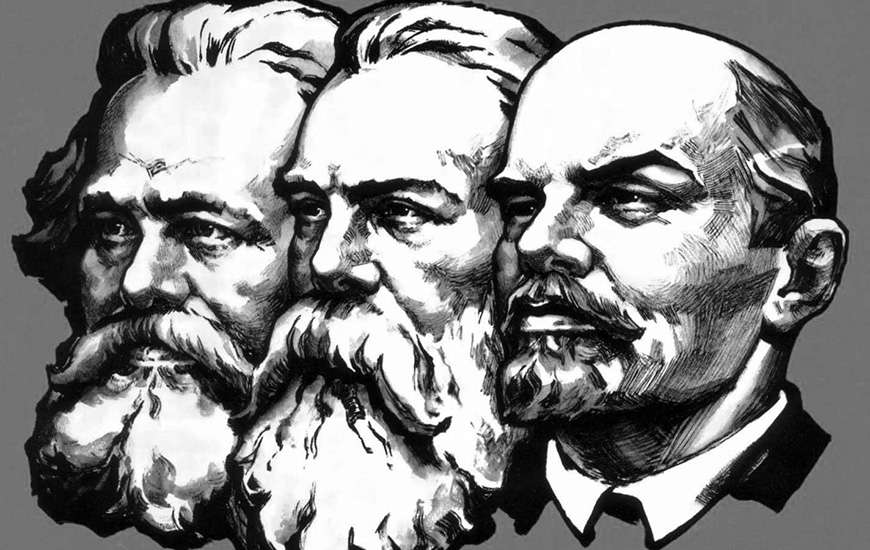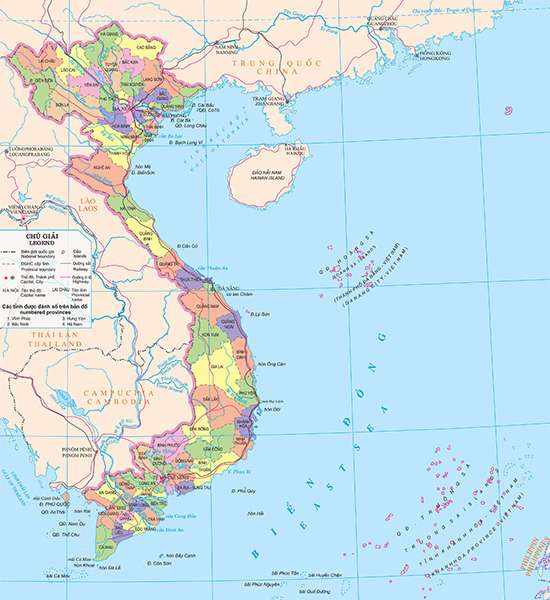Find out these intriguing facts about the politics of Vietnam before you embark on your trip of a lifetime.
1.
Vietnam is a socialist state which is ruled by a
single party.
2.
The Communist Party of Vietnam (
CVP) is therefore the only legal political party in Vietnam. Forming other political parties is forbidden.
3. Collective Leadership ("Four Pillars"): The political system is led by a collective leadership unofficially known as the "four pillars." These key figures are:
- ✓ The General Secretary of the Communist Party of Vietnam (currently To Lam, as of July 2024), who leads the Politburo and directs government and policies.
- ✓ The President of Vietnam (currently Luong Cuong, as of October 2024), who is the head of state.
- ✓ The Prime Minister of Vietnam (currently Pham Minh Chinh, as of April 2021), who is the head of government.
- ✓ The Chairman of the National Assembly of Vietnam.
4. The ideologies of the CVP are rooted in
Marxism-Leninism and
Ho Chi Minh Thought. In recent years, the party has stopped supporting a specific class and instead aims to represent the “interests of the entire people”.
5. The lessening emphasis on Marxism-Leninism in Vietnam has seen the government support ideas of nationalism, developmentalism, the protection of tradition and entrepreneurship in recent years.

6. With a total area of 331,210 km², Vietnam is divided into 59 provinces, all of which are administered by the national government. Districts, towns and rural communities are governed by people’s councils, which are locally elected.
Update 2025
Administrative divisions undergoing change: The previous information about 59 provinces is outdated. As of 2025, Vietnam is divided into 63 first-level administrative units, comprising 57 provinces and 6 centrally-governed municipalities. There are ongoing plans to further reduce this number significantly, potentially to around 34 cities and provinces.
7. Planned elimination of district-level administration: Vietnam is moving from a four-tier government system (central, provincial, district, commune) to a three-tier system (central, provincial, commune/ward) to enhance efficiency. This involves the planned abolition of district-level administrative units and the reorganization and merger of communes. As of March 2025, there were 696 district-level and 10,035 commune-level units, with plans to reduce communes to just over 2,000.

8.
Recent Government Restructuring (2025): Vietnam has undergone significant administrative reforms. In February-March 2025, the National Assembly approved a major government restructuring. This included:
Consolidation of Ministries: The cabinet structure has been streamlined, reducing the number of ministries and ministerial-level agencies. For example, some ministries were merged (e.g., Ministry of Agriculture and Rural Development with Ministry of Natural Resources and Environment to form the Ministry of Agriculture and Environment).
Party Central Committee Reduction: The Party Central Committee has seen a reduction in its official members.
9.
National Assembly elections occur every five years. The most recent election for the 15th National Assembly was in May 2021 (for the 2021-2026 tenure), with a very high voter turnout of 99.60%.
10.
All Vietnamese citizens aged over 18 have the right to vote, and anyone over 21 can run as a candidate.
The politics of Vietnam is just the beginning – get to know Vietnam for yourself on
guided discovery tours of Vietnam with Mr Linh’s Adventures.